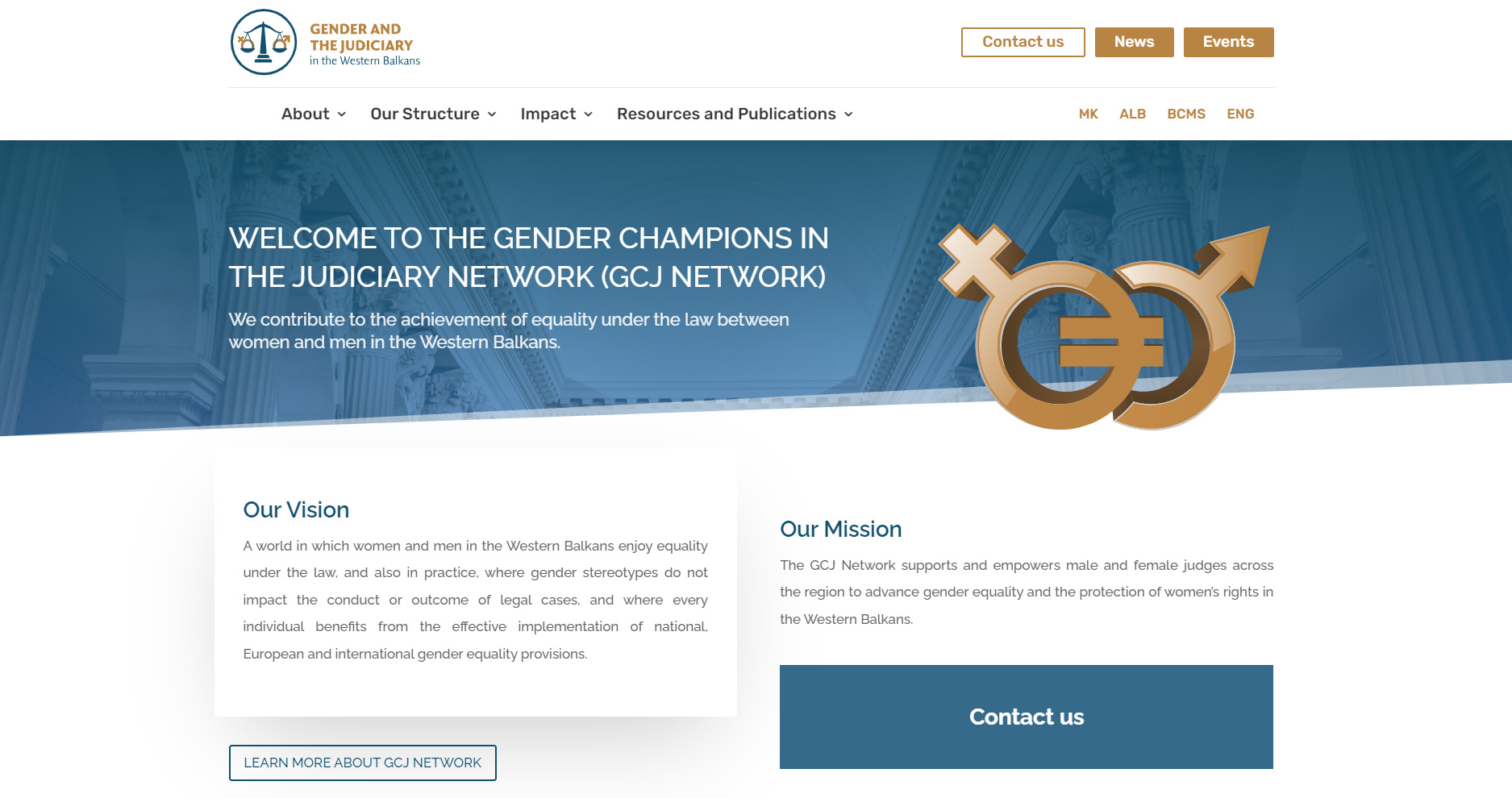Equality and fight against Gender-Based Violence (GBV) and Femicides in the Western Balkans
The Equality and fight against GBV and Femicides in the Western Balkans project, funded by the UK Government, aims to increase access to justice for victims and survivors of GBV through increased understanding of gender issues amongst the judiciary of the Western Balkans.
The project involves the commission and publication of analytical work aimed to establish gaps in compliance with good practice and international standards in this field, as well as the organisation of trainings, roundtable discussions and regional forums to deepen understanding of the relevant legal instruments, as well as the lived experience of women in this area.
Gender Champions in the Judiciary Network (GCJ Network)
The GCJ Network, a key component of the GBV and Femicides Project, represents a pioneering initiative in the Western Balkans region. It brings together a community of women and men judges dedicated to promoting gender equality and serves as a regional platform for its members to exchange ideas, collaborate, and drive change towards a more equal society. The GCJ Network operates across the six jurisdictions of the Western Balkans, including Albania, Bosnia and Herzegovina, Kosovo*, Montenegro, North Macedonia and Serbia.
The Network was founded in 2022 by the AIRE Centre in collaboration with the Judicial Training Institutes in each jurisdiction. It is managed by a Regional Board comprising senior experts from across the region and is supported by of a Board of Patrons, made up of eminent jurists, including from the European Court of Human Rights.
The wider project and the GCJ network exist to serve the following key goals:
- Develop awareness of gender issues, the nature and pernicious effects of gender stereotypes in Western Balkan society and the role of the judiciary in tackling these issues.
- Strengthen the skills, knowledge and practice of judges and other court practioners in relation to gender equality and gender stereotypes.
- Encourage the effective implementation of domestic, European and international legal instruments related to gender equality.
- Facilitate the sharing of knowledge, skills, experiences and ideas relating to gender equality amongst judges and legal practitioners across the region.
- Advance the professional and personal development of women judges in the region.
